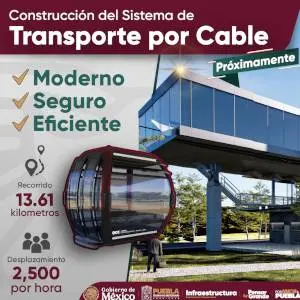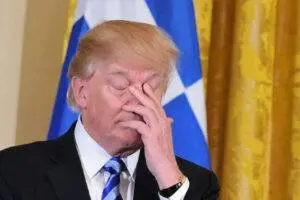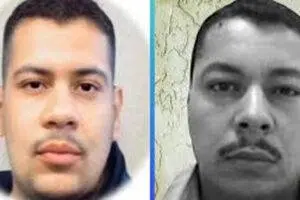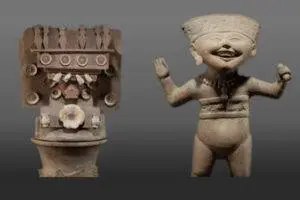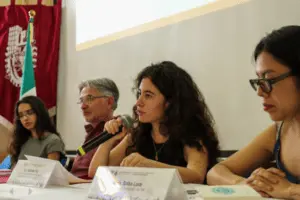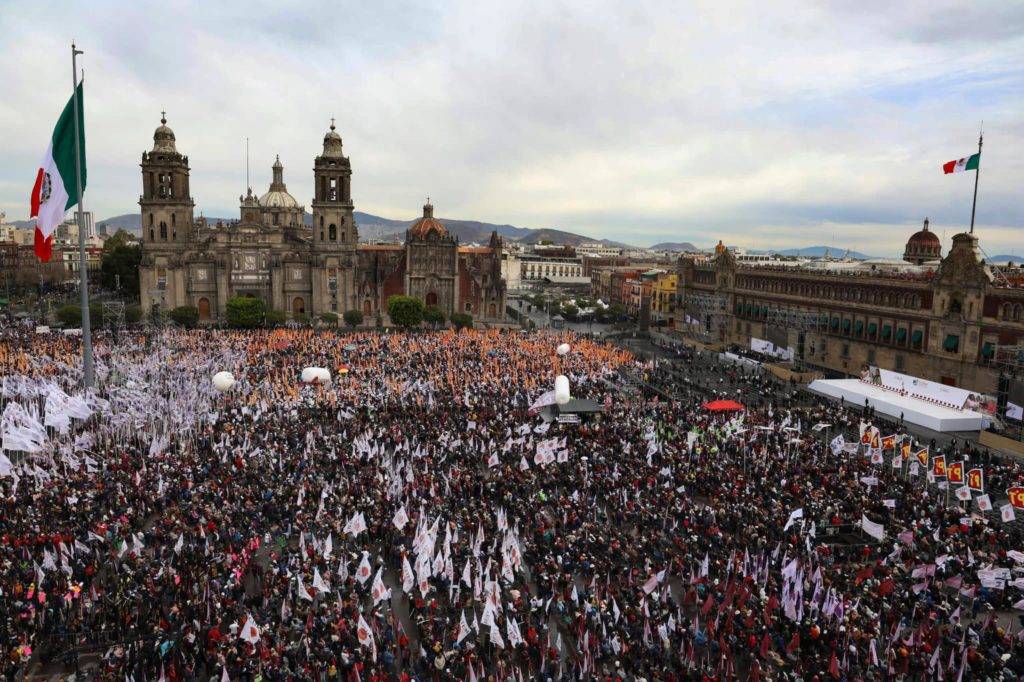
SUMMARY
PRESIDENT CLAUDIA SHEINBAUM’S REPORT ON THE FIRST 100 DAYS OF HER ADMINISTRATION
MEXICO CITY, ZOCALO SQUARE, SUNDAY, JANUARY 12, 2025
“I AM DEDICATED BODY AND SOUL TO THE GOOD OF OUR PEOPLE AND OUR NATION»: PRESIDENT CLAUDIA SHEINBAUM PRESENTS REPORT ON THE FIRST 100 DAYS OF THE SECOND STAGE OF THE FOURTH TRANSFORMATION
photos: https://we.tl/t-vm6BAGDNaN
• Sheinbaum highlighted the results and future projects in well-being, health, education, science, security, energy, water, roads, and passenger trains.
• She emphasized that in the first 100 days of her administration, it has been demonstrated that women have the strength, integrity, spirit, and capacity to lead the nation’s destiny.
• “Peace and prosperity are built by expanding the rights of the people and providing access to justice. This is the Fourth Transformation,” she said.
• “We coordinate, we collaborate, but we never accept subordination,” the President said, regarding Mexico’s relationship with the United States, which, she asserted, will be good and respectful.
Mexico City, January 12, 2025.- 100 days into the beginning of the Second Stage of the Fourth Transformation, President Claudia Sheinbaum Pardo affirmed that she is dedicated body and soul to the good of the people of Mexico, which today is a living, sovereign, independent, free, democratic, and increasingly fairer nation.
“Peace and prosperity are built by expanding the rights of the people and providing access to justice. That is the Fourth Transformation and that is why today we have a living, sovereign, independent, free, democratic, increasingly fairer Mexico, with a joyful, enthusiastic, and empowered people.”
“Serving the people and the homeland is the greatest privilege we can have. Rest assured that I am dedicated body and soul to the good of our people and our nation. In that, our very lives are at stake,” she emphasized in her report to the people of Mexico in the capital’s Zócalo square.
She stressed that Mexico is a free, independent and sovereign country that will have a good, respectful relationship, with coordination and collaboration with the United States, but never with subordination.
“I am convinced that the relationship between Mexico and the United States will be good and respectful and that dialogue will prevail. Our vision is Mexican Humanism, fraternity among peoples and nations. Of course, we will always keep our heads held high. Mexico is a free, independent, and sovereign country. And as I have said: we coordinate, we collaborate, but we never accept subordination.
President Sheinbaum stressed that Mexico is changing for the better and is experiencing exceptional times, since it is a time of transformation and a time for women. She explained that in the first 100 days of her government it has been demonstrated that women have the strength, integrity, spirit, and capacity to lead the nation’s destiny.
“Also today I say to those who think that ‘we women have no initiative of our own’, that ‘others think for us’, to those who affirm that ‘we women do not govern because we do not have capacity or intelligence’, to those who believe that ‘Presidente is written with an ‘e», to those who in cowardly fashion cannot recognize that we women are people.”
“To those who have not yet understood that women can be achievers, we say: just as we run a home, just as we are mothers and grandmothers, we also have the strength, the fortitude, the spirit, and the capacity to be firefighters, engineers, astronauts, doctors, lawyers, and Supreme Commanders of the Armed Forces,” she reaffirmed.
The President noted that the Mexican Government’s National Security Strategy, which is based on four axes -Attention to the root causes; Strengthening of the National Guard; Intelligence and Investigation, and Coordination- between September and December 2024 achieved a 16 percent reduction in intentional homicides, a 20 percent decline in intentional injuries with the use of firearms, and a 5 percent decrease in all violent robberies.
Sheinbaum explained that during the 100 days of the Second Stage of the Fourth Transformation, she visited the country’s 32 states, traveling 32,449 kilometers by land and air, meeting with the 31 state governments and the Head of the Mexico City Government, to together define the next strategic projects.
“Why do we call it the ‘Second Stage of the Fourth Transformation’? Because the foundations, the base, were laid by the best President ever, Andres Manuel Lopez Obrador, and it is up to us to consolidate, add to, and move forward with the second stage, with the roots firmly planted and with our heart on our sleeves,” she said.
The President reported that in 2025, with an investment of 835 billion pesos (US$40.27 billion), 13. 2 million senior citizens will receive their pension; 2 million people with disabilities will receive their financial support; 400,000 young people will benefit from the Building a Future program; 410,000 higher education students will have financial assistance scholarships; 4.10 million children will receive a primary school financial assistance scholarship; over 4.22 million high school students will receive financial assistance scholarships; 95,819 peasant farmers will continue to have access to guaranteed prices; 193,000 fishermen will benefit from Bienpesca; 445,000 peasants farmers will continue in the Sembrando Vida agricultural support program; 2 million small farmers will receive free fertilizers and support from Producción para el Bienestar; 174,000 schools will profit from La Escuela es Nuestra program, and 12,381 Health-Care Centers will benefit from the La Clínica es Nuestra program.
In the area of education, she recalled that the commitment is to add 200,000 new openings for Higher Secondary Education enrollment and 330,000 new openings for Higher Education. With this in mind, Sheinbaum announced that tomorrow she will present the new model for Higher Secondary Education, which contemplates building 20 new high schools by 2025 and expanding 65 schools in 59 municipalities in 30 states to provide 40,000 new openings at this educational level. In addition, this year the Rosario Castellanos National University will have six new campuses, with 25,000 new students, located in Chalco and Naucalpan, State of Mexico; Comitán, Chiapas; Tijuana, Baja California; Kanasín, Yucatán; Tlaxcala; and San Luis Potosí.
Sheinbaum reaffirmed the commitment to make Mexico a scientific power, and therefore work is already underway and sufficient resources are being allocated to promote the development of projects such as Olinia, the first Mexican assembly plant for mini electric vehicles; the semiconductor design workshop; the formation of groups of scientists to design and build unmanned airplanes, marine buoys for measuring, lithium extraction methods, free software and an artificial intelligence factory, among other proprietary developments.
In the field of health, she reported that with the implementation of the New Model of Consolidated Purchases of Pharmaceuticals and Medical Supplies to guarantee the supply for this and next year, savings of an additional 23 billion pesos (US$1.11 billion) have already been achieved to date, through the transparent use of digital platforms. In addition, the Ministry of Health has created groups of medical specialists to create national protocols for medical care in order to unify criteria and the application of pharmaceuticals according to diseases and illnesses.
In relation to food sovereignty, Sheinbaum announced that the Cosechando Soberanía program was launched, with the participation of 60,000 producers, with whom 155 territorial projects were designed to increase the production of corn, beans, rice, vegetables, coffee, cocoa, and honey. Alimentación para el Bienestar was created for such effects, and in 2025 it will operate 25,000 Tiendas de Bienestar stores throughout the country, which, through its “Bienestar” brand, will offer healthy food at low prices. In addition, the bean self-sufficiency program was launched with the recovery of the Seed Production Plant in Zacatecas; construction began on two milk production plants in Michoacán and Campeche, as well as 14 milk collection centers in Chihuahua.
The President announced that tomorrow the first achievement of Plan Mexico will be presented. Plan Mexico is a comprehensive, equitable, and sustainable long-term economic development policy that will substitute imports, generate production chains, promote well-paid jobs and, above all, the well-being of Mexicans through public and private investment, developing all the regions of the country in accordance with their natural resources and promoting global company offshoring.
In terms of mobility and infrastructure, the President explained that passenger train service will continue to be revived, which is why the complete circuit of the Mayan Train was put into operation. This is a unique work project in the world whose operation is a success, since from October to December 2024 alone it was used by close to 400,000 passengers and in 2026 it will also handle cargo. The section of Interoceanic Train line from Ixtepec to Ciudad Hidalgo is 60 percent complete and will begin operating up to Tonalá in July of this year. In addition, construction will begin in April on the following new passenger train routes: Mexico City-Pachuca; Mexico City-Nuevo Laredo; and Mexico City-Nogales.
In addition, Sheinbaum will inaugurate the widening of the San Cristóbal-Tuxtla Gutiérrez; Bucerías-Puerto Vallarta; and Mitla-Tehuantepec highways. Work will begin on widening 11 highways: Cuautla-Tlapa-Marquelia; Tamazunchale-Huejutla; Bavispe-Nuevo Casas Grandes; Circuito Tierra y Libertad in Morelos; Toluca-Zihuatanejo; Salina Cruz-Zihuatanejo; Macuspana-Escárcega; Ciudad Valles-Tampico; Tijuana-Ensenada; Saltillo-Monclova and Guaymas-Chihuahua. In addition, Mexicana Airlines will continue to be the airline of the people of Mexico, with the arrival of new airplanes.
In energy questions, Sheimbaum noted that as part of the policy to strengthen the Federal Electricity Commission (CFE) and Petróleos Mexicanos (Pemex), expansion plans for both companies are already in place. Between 2025 and 2030, electricity generation will be increased to 27,000 megawatts with a large percentage corresponding to renewable energies, guaranteeing that 54 percent will correspond to CFE generation. In addition, 145 electricity transmission projects will be put into operation. Pemex will guarantee the production of 1.8 million barrels of oil, the efficient operation of its eight refineries, and the development of new fertilizer and petrochemical projects. It will also take charge of the circular economy project in Hidalgo.
President Sheinbaum explained that, as part of the National Agreement for the Human Right to Water and Sustainability, signed by the 32 governors, in the first 100 days of her administration, accords have already been signed with seven of the 13 priority districts in Hidalgo, Aguascalientes, Sinaloa and Morelos. In the next few days, all the agreements with producers will be signed and work will begin this year. The technification project will save 50 percent of the water consumed in agriculture and will benefit more than 200,000 producers. She recalled that, with the signing of this agreement, businesspeople with water concessions and 64 Irrigation Districts ceded more than 3 billion cubic meters, which have been added to national waters, equivalent to three times the total water consumption of Mexico City.
In addition, 17 strategic drinking water and flood prevention projects will be initiated in Baja California, Baja California Sur, Campeche, Coahuila, Colima, Durango, Guanajuato, Guerrero, Oaxaca, San Luis Potosí, Sonora, Tabasco, Tamaulipas, Veracruz, Zacatecas, and the Metropolitan Zone of the Valley of Mexico (ZMVM). An agreement is also being drafted to join municipal, state, and federal resources to grant the right to water and benefit 31 million people across the country.
President Claudia Sheinbaum Pardo was accompanied in the event by the people of Mexico, by all the members of her legal and expanded cabinet, as well as by the governors of the country’s different states; members of the Chamber of Deputies and the Senate; representatives of the native peoples, and the business sector.

